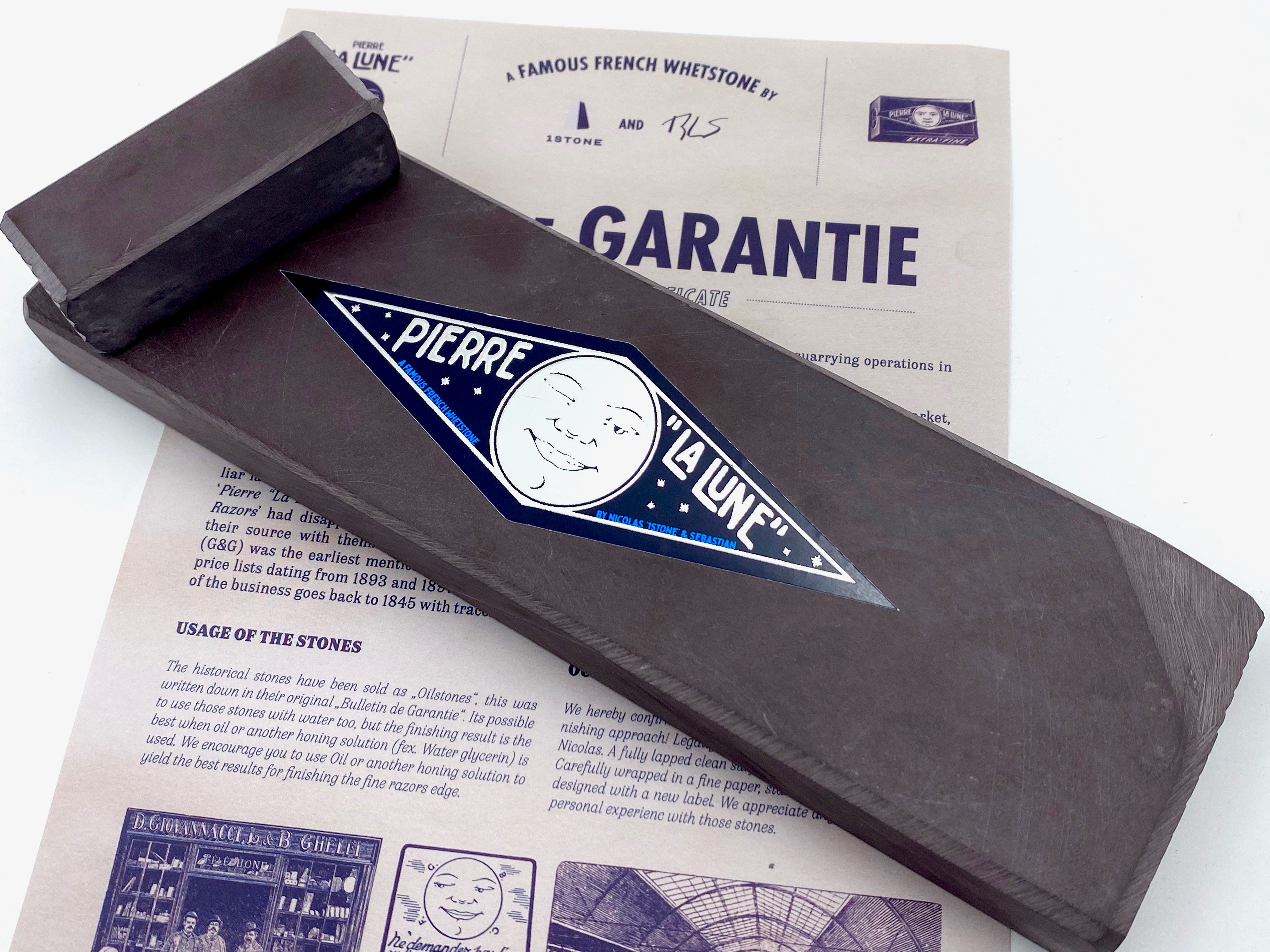
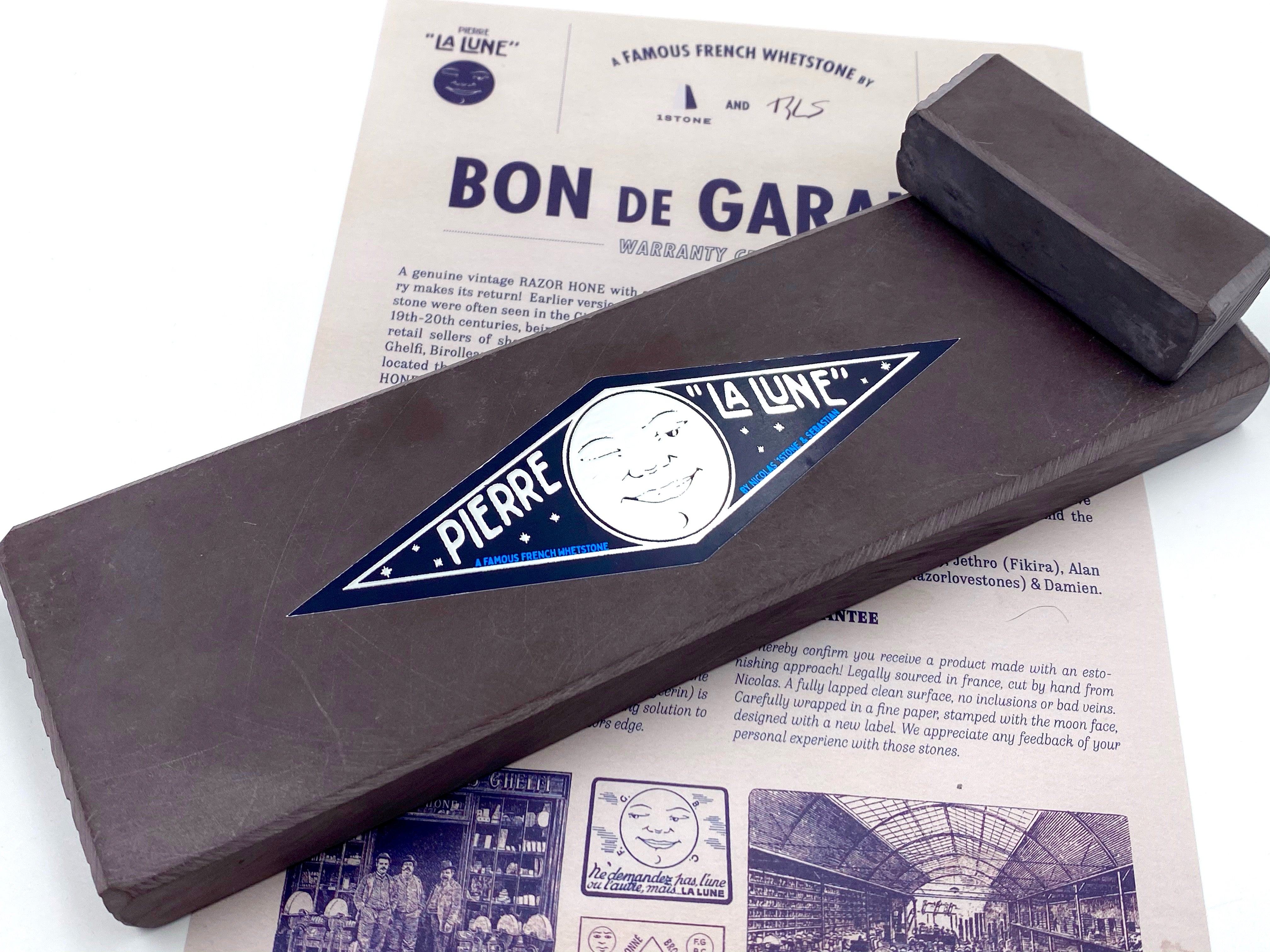
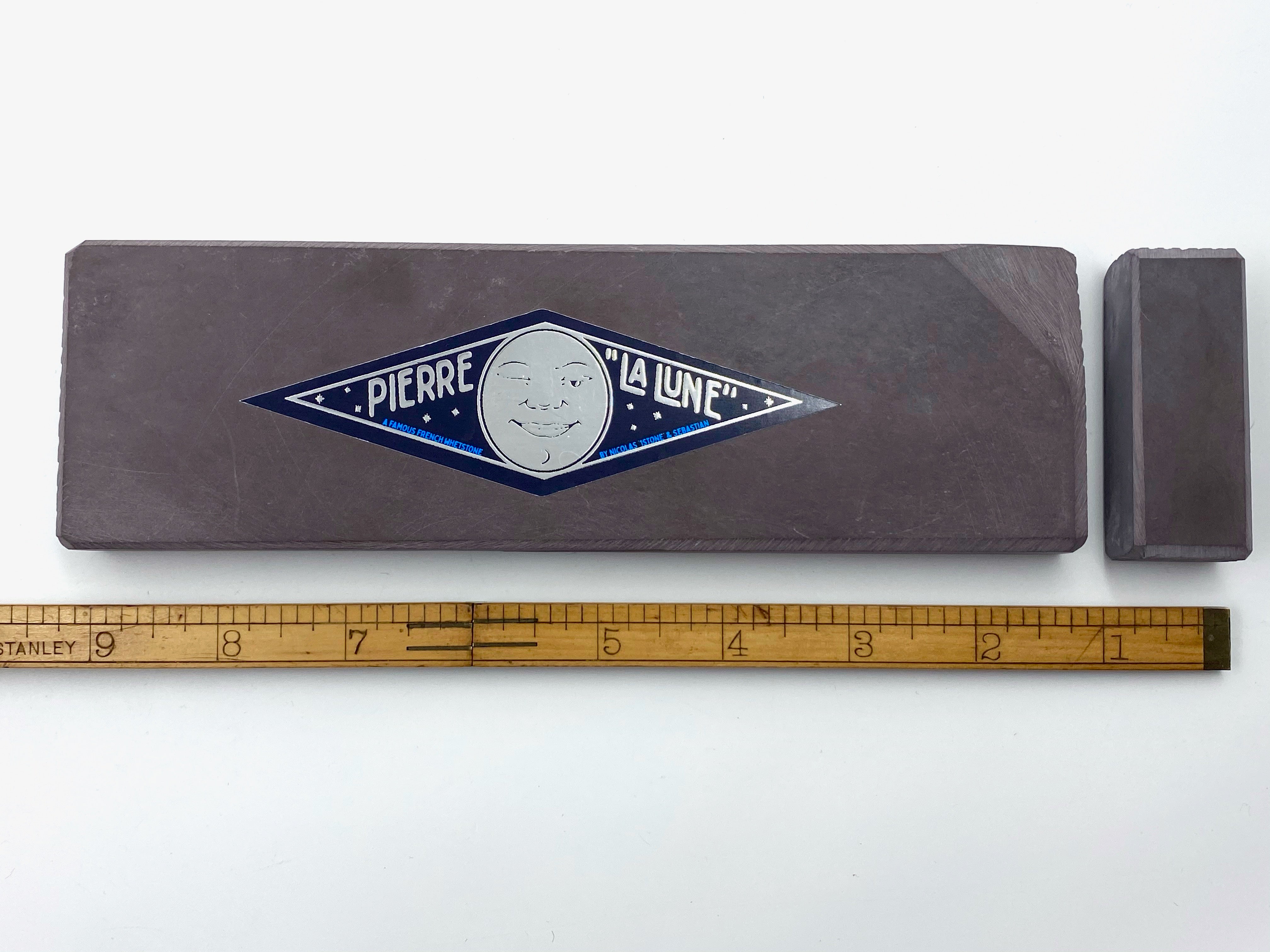
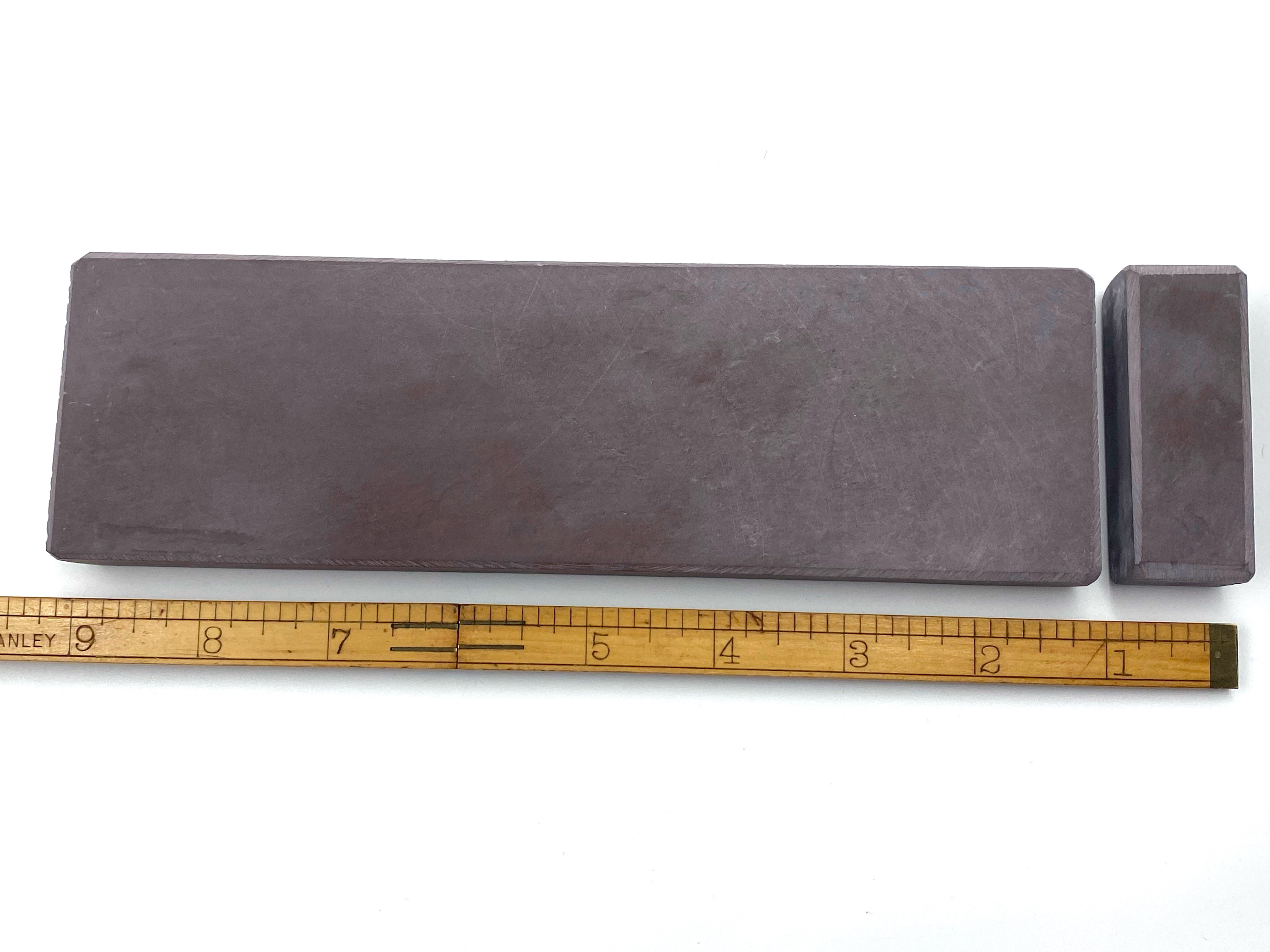
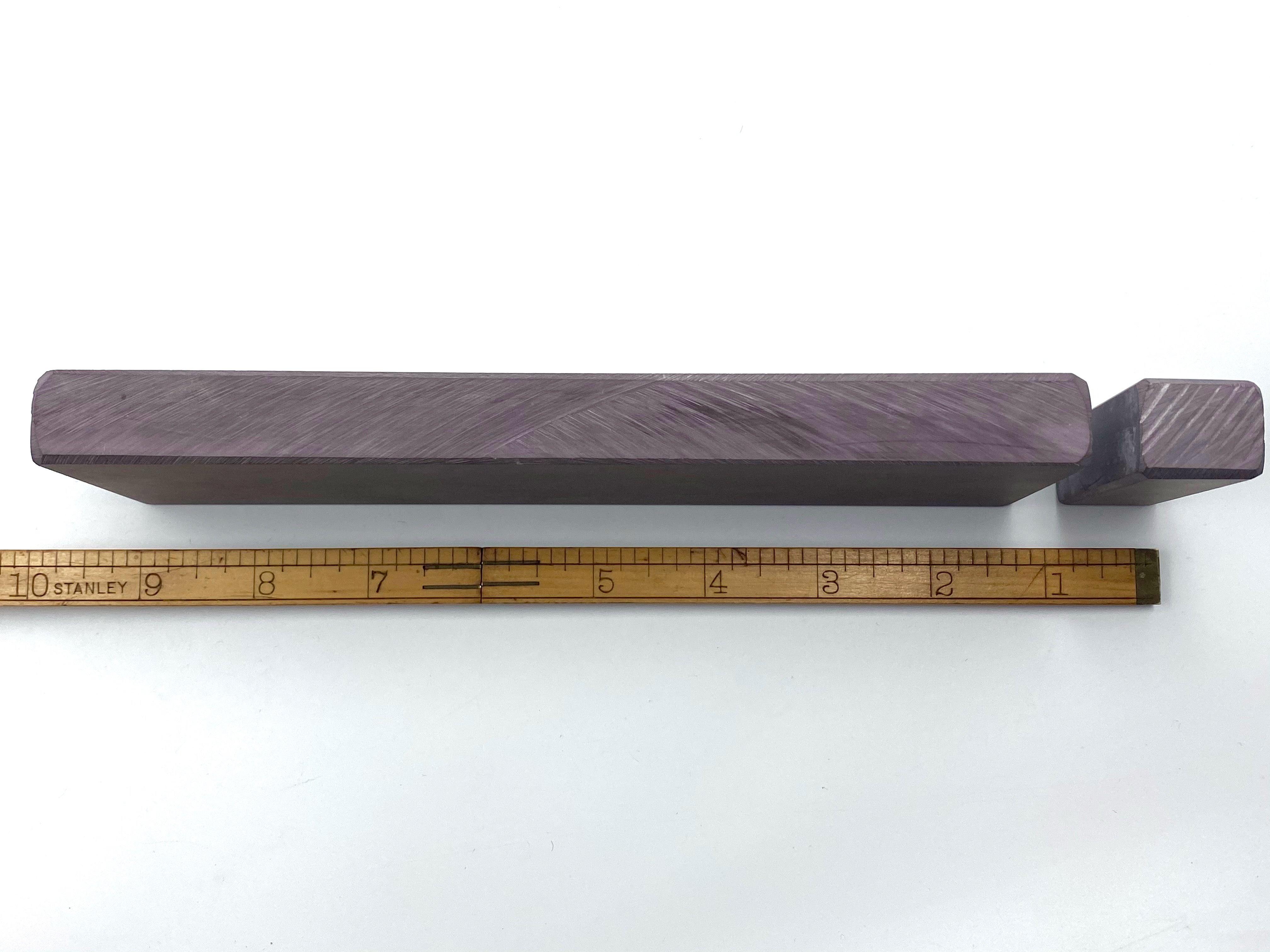
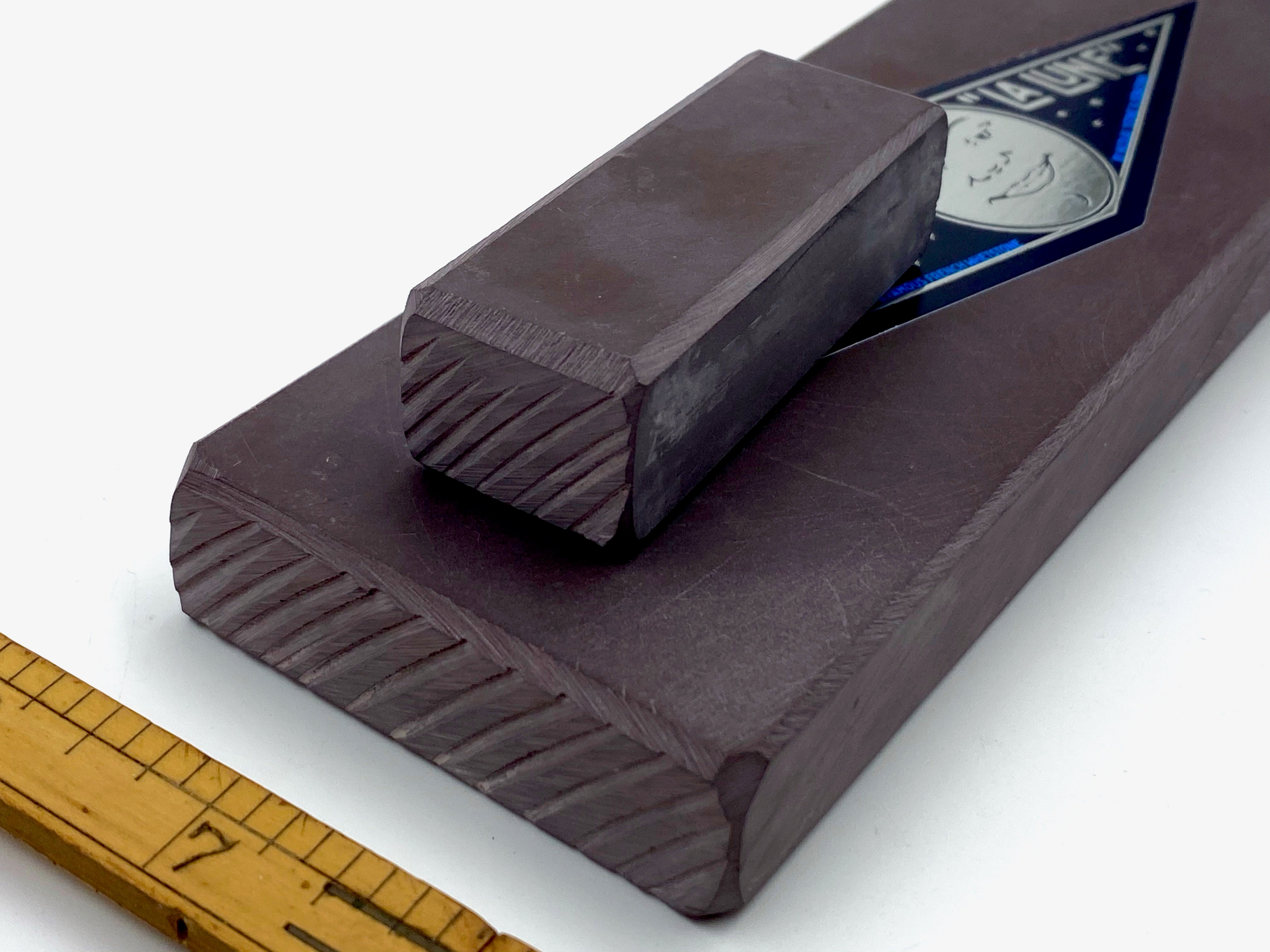
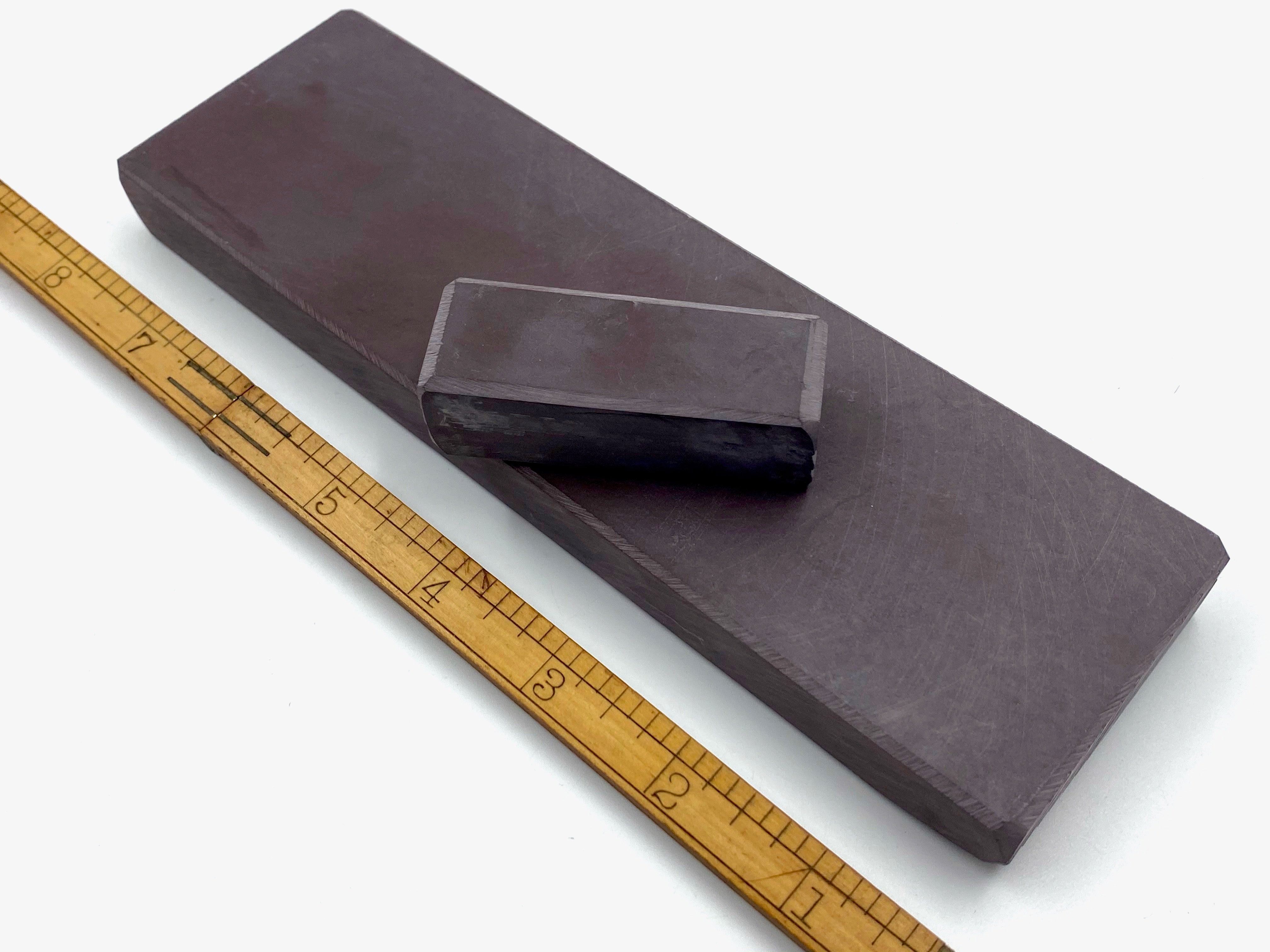
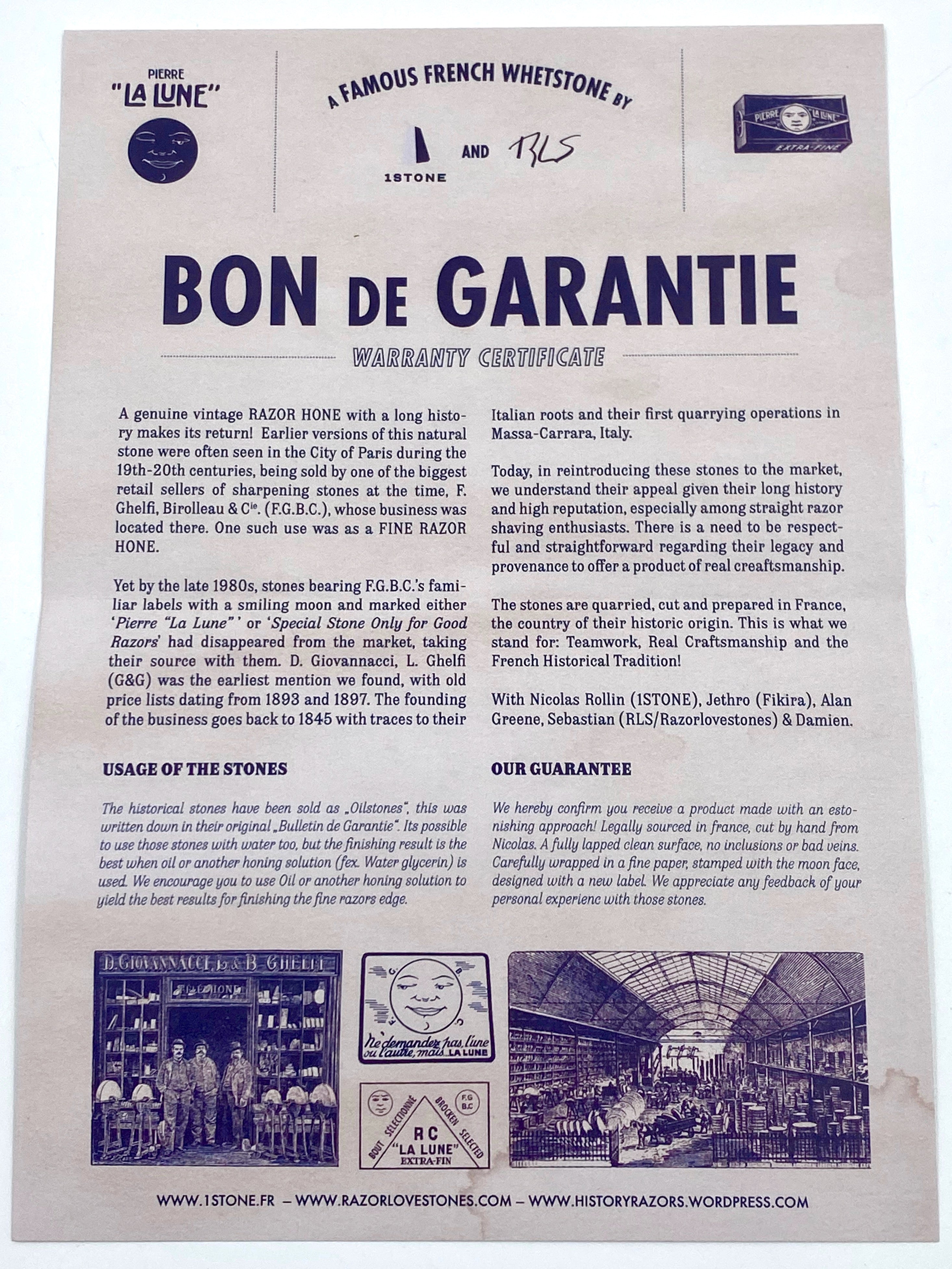
Griffith Shaving Goods
Pierre "La Lune" - 200x60mm (8x2.25") -French Fine Finishing Razor Hone Sharpening Stone with Slurry Stone
The return of “La Lune” Razor hones, brought to us by 1Stone in France.
After years of geological research of the original ore and the “La Lune” heritage, a passionate and experienced team of European natural sharpening stone experts is pleased to be able to bring this amazing and coveted hone back to market.
Traditional characteristics of the original "La Lune" hones have been maintained:
- The Logo (slightly modified)
- The name
- Typical saw marks
- Similar sizes as from the period catalog
- Guarantee voucher of the stone's authenticity
Each stone is individually wrapped in tissue paper, wrapped with hemp twine with a wax seal of ”The Moon”.
"La Lune" stone is a sedimentary slate which has undergone a mineral transformation called Redox. It is quite possible on certain hones to observe green mineral spots in the form of dots or oval shape which are natural material pockets which does not represent any danger or toxicity for steel, this color is due to conditions where more “reducing” has occurred causing Clinochlore (Chlorite)
The exact mineral composition of "La Lune" hones is: Chlorite, quartz, sericite also composed of microlites of rutiles and tourmaline.
Use:
The stone was used in the past and recommended for use with oil (glycerin, mineral oil), but the stone can be used perfectly fine with water. Each hone is finely lapped and ready for use.
The grain is 12000 to 15000, this is a fast but very fine finishing stone for razors. We have noticed that with knives where the pressure is greater the abrasion will be greater.
History of the FGBC ”La Lune” razor hones:

FGBC = Ferdinand (o) Ghelfi, Birolleau & Cie.
The company was founded from Ferdinand (o) Ghelfi in 1903, followed by the children who took over the name of the family business with collaborators like the Ghelfi family Fratelli brothers: Carlo, Ferdinando, Lorenzo, Jean Baptiste and Constantino.
In addition to natural stones and abrasives (razor paste), FGBC had made synthetic sharpening stones but also the imported foreign stones such as Washita, Arkansas in order to satisfy their markets.
